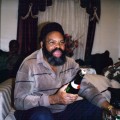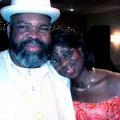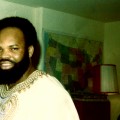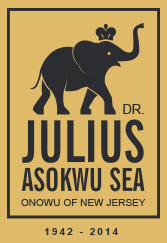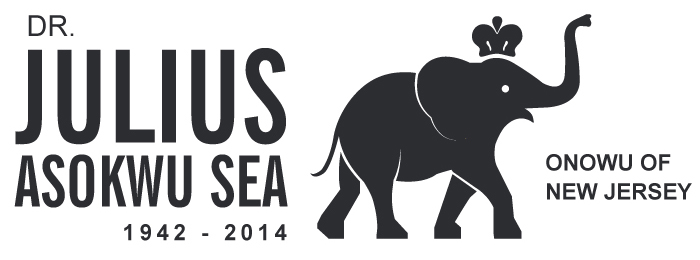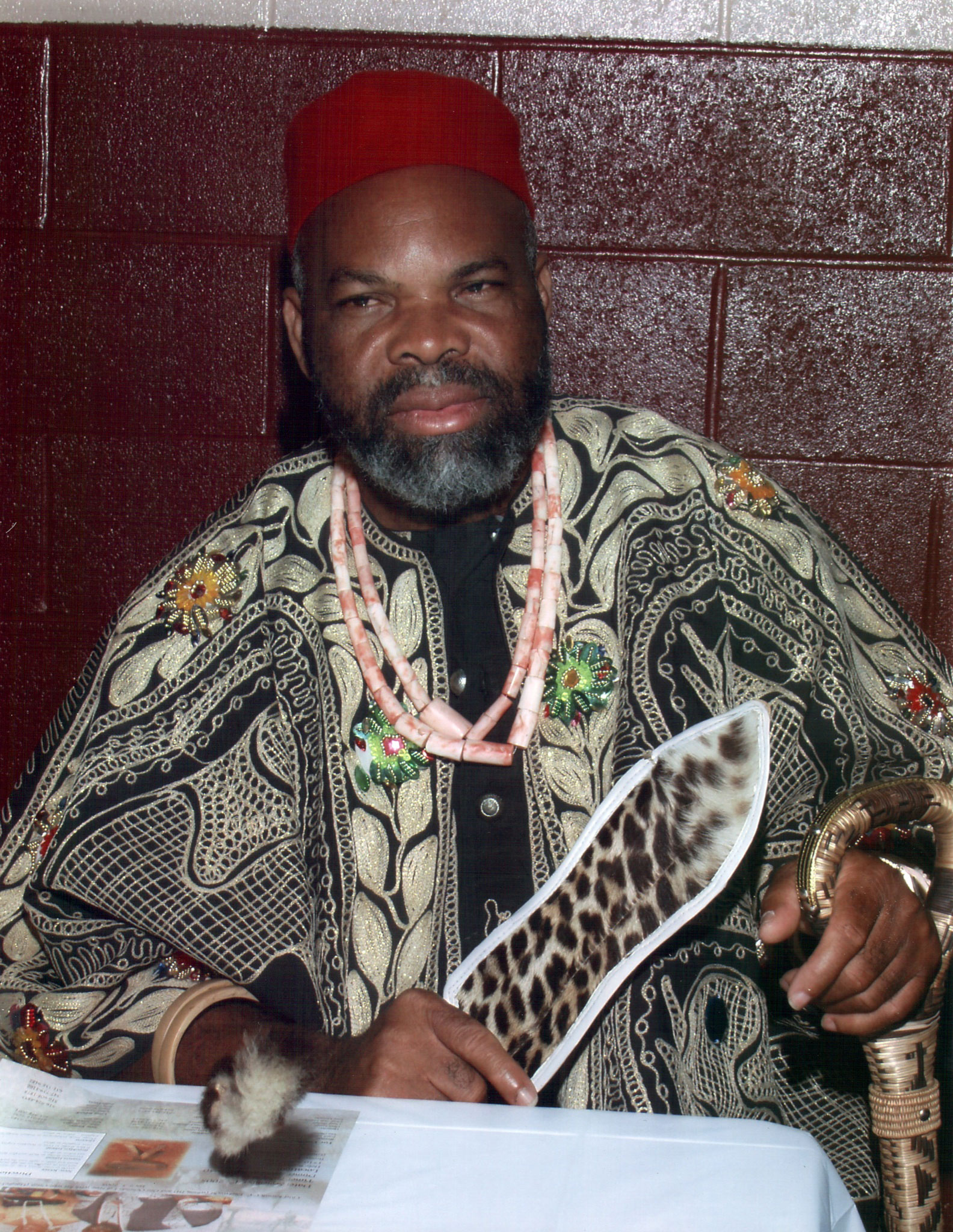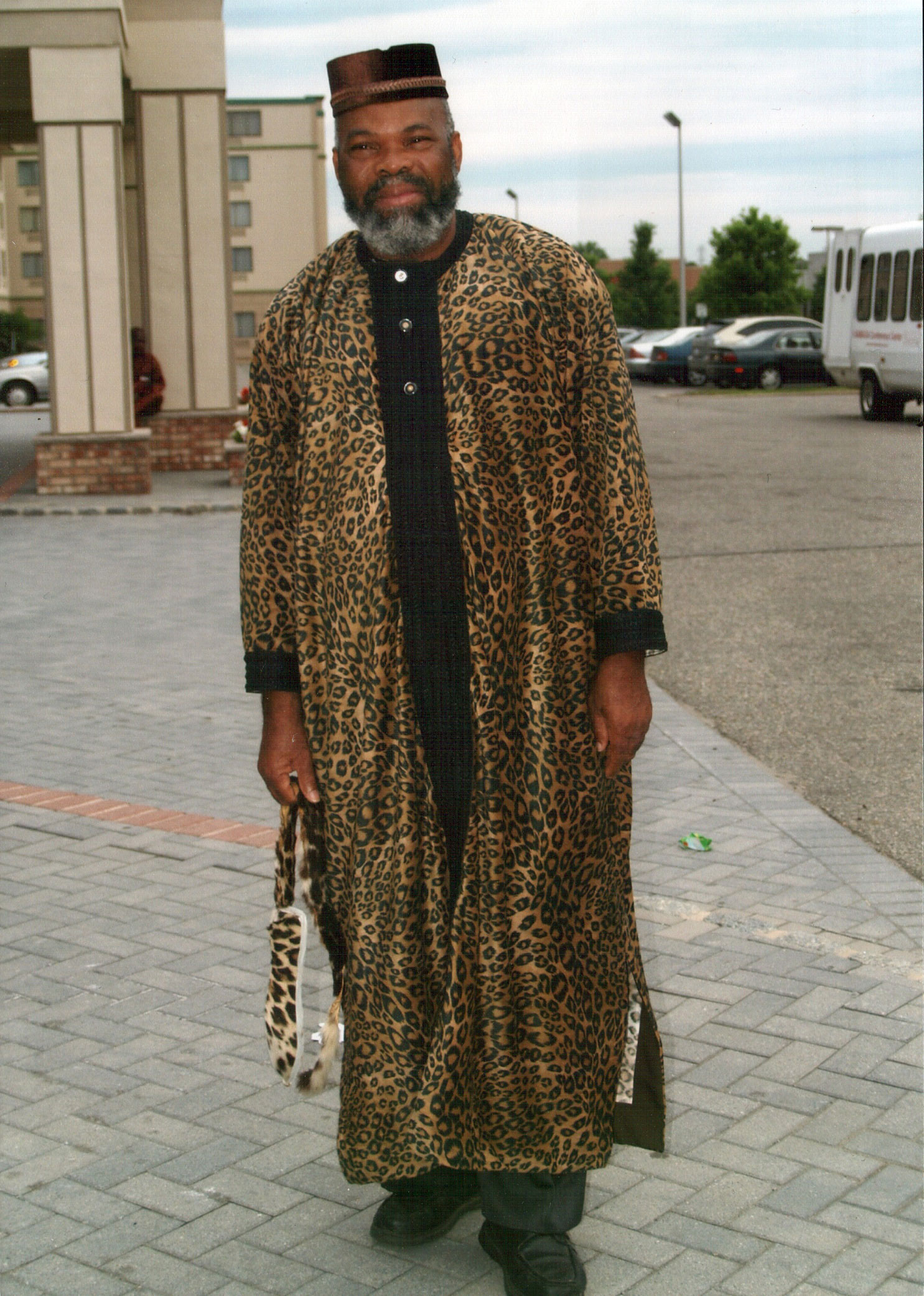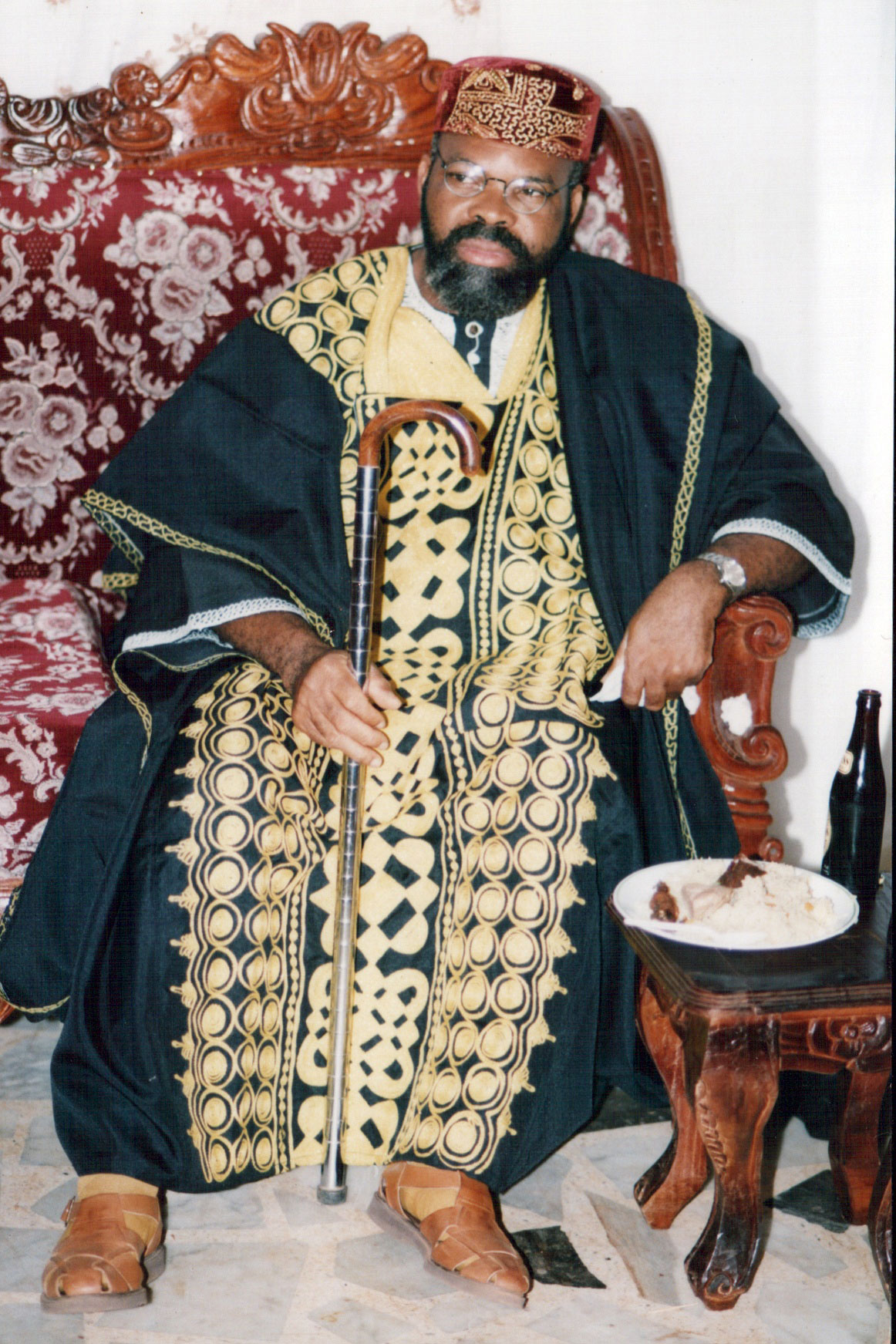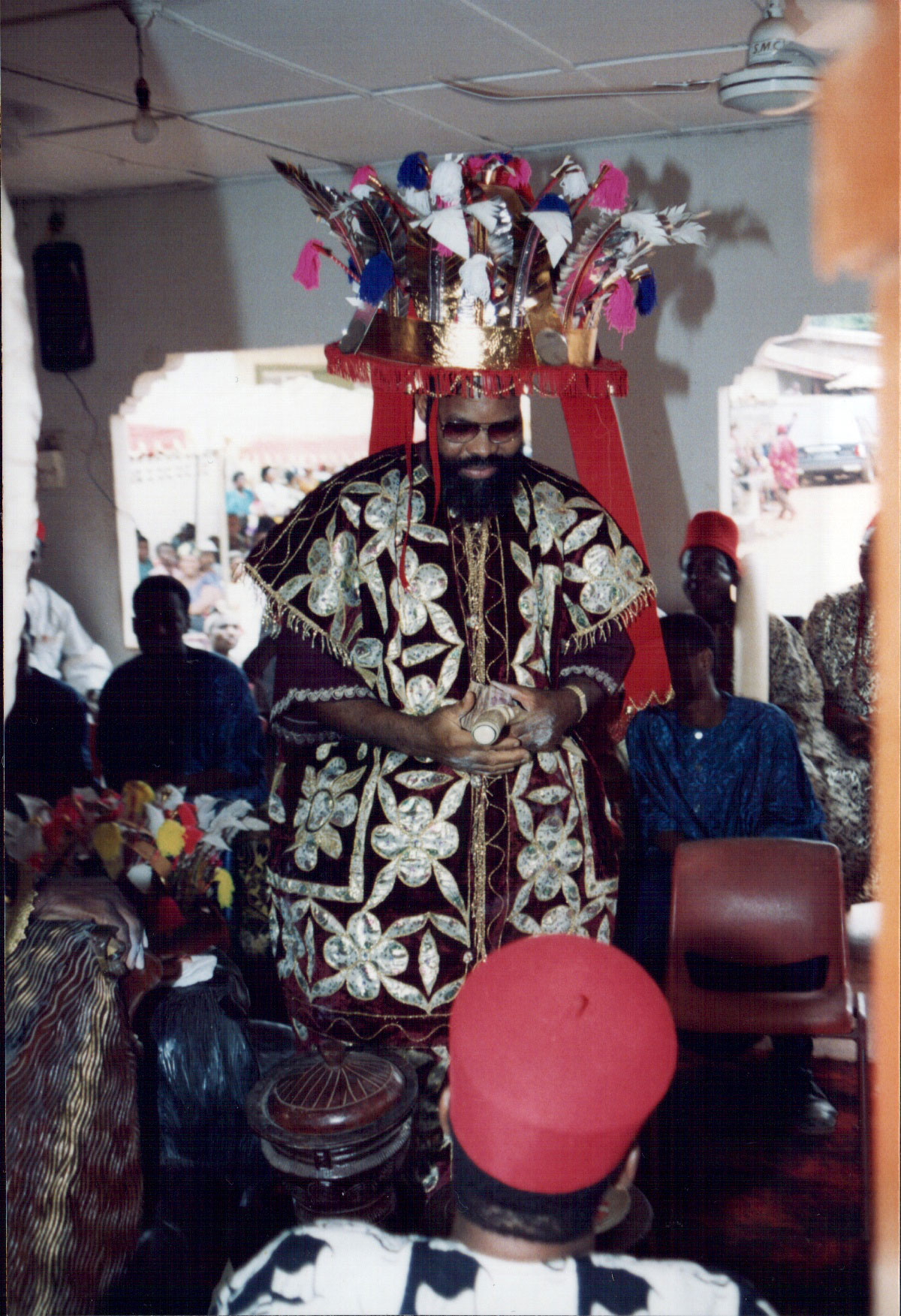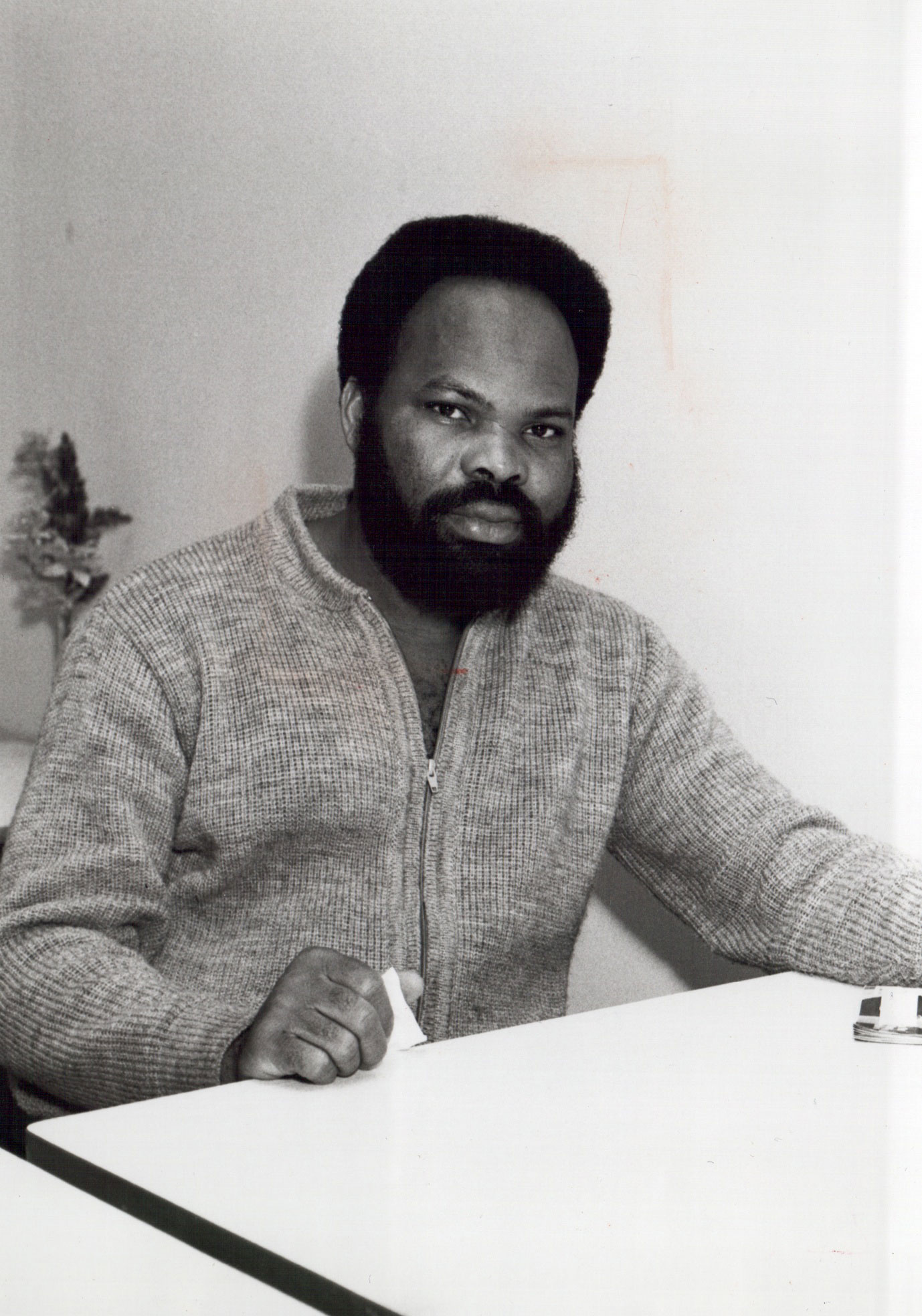Biography
A Legend Is Born – Dr. Julius Asokwu Sea, 1942 – 2014
by Professor Gaius Igboeli, Ph.D, Professor Kenneth Iloabuchi, Francis Asokwu Sea, Esq. & Nexus Uzoma Sea, Esq.
Dr. Julius Sylvester Ezeani Asokwu, or most commonly known as “Onowu” of New Jersey, was born on November 10, 1942 in Warri, (a robust commercial city located in present day Delta State, Nigeria) to the family of British trained Staff Sergeant, Ethelbert Asokwu, from Ifite Dunu, Dunukofia Local Government Area, and Mrs. Agatha Asokwu (née Iloabuchi) from Abagana, Njikoka Local Government Area – both from Anambra State. At age 5, Julius moved to Abagana to live with his grand parents, Obidike (Akata Isi Ebue) and Mgbafor (Iyom) Iloabuchi of Orofia Village. Akata Isi Ebue taught Julius the traditional ways of making yam mounds and the planting of cassava and maize, among other things. Julius also became versed in the proper utilization of Igbo proverbs and prose – a skill he became recognized for by many of his peers. His adolescent years would eventually set the stage for his wholehearted embrace of Igbo culture and community, which he tirelessly promoted and worked hard to unite until his last breath.
Julius started his primary education at St Mark’s Catholic School in Abagana, and obtained his First School Leaving Certificate (a document signifying that the holder has fulfilled his entry requirement into secondary school education) in 1957. After secondary school, Julius went off to the seminary, where he studied to become a priest. Julius was known by all in the community to be extremely kind hearted and caring – one who loved his neighbor as himself and who was always willing to support the success of another. Those that knew him well attribute these qualities to his training in the priesthood. Although Julius would eventually change course, he fulfilled his calling to serve God in more ways than one, and the many lives that he has touched and impacted in a positive way, are a testament to that.
Julius attended All Hallows Seminary in Onitsha, Anambra State, and later went on to the Pope Pius X Seminary in Ogoni, Rivers State. Some of his classmates include Rev Fr. Nwadiugwu and Monsignor Nwazojie. Julius also went on and obtained his Cambridge School Certificate. Thereafter, Julius set his sights on Lagos, Nigeria – the second fastest-growing city in Africa and the seventh in the world – and a place full of opportunity at the time, as it still very much is today.
Julius eventually obtained employment at a prominent Lagos bank at the time, the African Continental Bank (ACB), and one of Nigeria’s premiere produce and merchandising companies, John Holt Limited, the Nigerian subsidiary of John Holt & Co. (Liverpool) Ltd. He would later secure admission to The Federal Advanced Teachers’ College, which was later integrated into the University of Lagos, as the College of Education. In the 60’s, admission to The University of Lagos (“UNILAG”) was a coveted prize reserved for the nation’s brightest minds, and was a major achievement for Julius.
As a UNILAG student, Julius quickly became popular among the students. He was a natural “people person” and developed friends quickly. While at UNILAG, Julius honed his leadership skills and would eventually be elected President of The National Union of Nigerian Students (“NUNS”). He also became a recipient of the coveted Eastern Nigeria scholarship. As NUNS president, Julius would represent Nigeria and Nigerian students across the globe. During the course of his administration, he went on various international assignments in countries, including Germany, Hungary, the Republic of Bulgaria, and the then Socialist Federal Republic of Yugoslavia and the Soviet Union.
These visits made an impression on his worldview. He often referred to himself as an internationalist, and it showed in his appreciation for diversity. He had an unshakable belief in the success of a Nigerian state where diversity is used as a uniting factor, rather than as a wedge. The experience left an indelible impression on the young Julius, convincing him that the sky was the limit for, not only him, but any hard working individual who had the determination to make a difference.
For fun, Julius literally embraced life in the fast lane and “fast and furious” motorcycles and the streets of Lagos became his guilty pleasure. Julius became a member of a popular Lagos Motor Cycle Club, and owned several motorcycles, including the 1960 Honda CA95, Triumph Thunderbird, and a Harley Davidson. He became a passionate rider.
In 1966, Julius graduated from UNILAG and returned the same year to South Eastern Nigeria. He was excited to start teaching. His first teaching job was at Saint Michael’s Secondary School in Nimo, Anambra State. However, his time there would be short lived, as during this period a national crisis was about to engulf the nation, which would ultimately leave Nigeria divided along ethno-religious lines for years to come. Julius eventually found his way to the Republic of Cameroon, where he secured a teaching job at Muyuka Grammar School. Economic, ethnic, cultural and religious tensions, mainly between the northern Hausas and South East Igbo would lead to the declaration of the Republic of Biafra in 1967, and an eventual two and a half year long civil war (the “Nigerian-Biafran War”) which would claim the lives of over one million civilians.
During the Biafran war, Julius was extremely active in organizing relief funds and donations for his fellow Igbos. The war became notorious for the starvation of some of the besieged regions during the war, and consequent claims of Igbo genocide on the largely Igbo people of the region. After two-and-a-half years of war, the Biafran forces agreed to a ceasefire with the Nigerian Federal Military Government (FMG), and Biafra was reintegrated into Nigeria.
In connection with Julius’s efforts during the war, His Excellency Chukwuemeka Odumegwu Ojukwu, the then Biafran Head of State, would later visit Julius in his East Orange, New Jersey home, in 1976. However, Julius arrived in the United States in 1969, and like most immigrants who arrived in the States during that time, Julius quickly found that America was not the “bed of roses” he thought it would be. In the beginning, things were very difficult.
Julius eventually secured employment at the Estate Manor Hotel in East Orange, where he eventually bought his first home. The job provided food and board, and gave Julius an opportunity to work and go to school. Julius never forgot his early years in America, where he “cut his teeth,” learned the value of hard work, and came to the realization of what his key to the American dream would ultimately be – education, education, education.
Julius enrolled in Seton Hall University, a premiere Catholic University, in South Orange, New Jersey as a graduate student. He obtained his B.S. in History Education in 1971, and would eventually enroll in Seton Hall University School of Law, where he obtained his Juris Doctor (J.D.) in 1977. For Julius, education was not just a means for him to get ahead; he saw it as an opportunity that all Igbos should embrace in order to build a strong successful Igbo community. Julius mentored many Nigerians that followed him, and promoted education in the community. He facilitated visas for many friends and acquaintances, and helped them obtain scholarships to go to school in the States.
Julius’s love for education led him to become a career educator. He taught American History, among other liberal arts courses. Julius was an adjunct professor for some years at Essex County College. Essex County became the “Ellis Island” for many successful Igbos in New Jersey. With Julius’s help, Essex County College quickly became the gateway for many Nigerians to get their U.S. educational footing. Julius helped many Nigerians obtain scholarships to get their start at Essex County, after which many catapulted their way to higher education in fields of law, medicine, and pharmacy, among others. Julius loved success, especially the success of others.
Although Julius obtained his law degree, he never actually practiced law. Julius worked for the Newark Board of Education as an educator for over 30 years until he retired in the 90’s. While teaching, Julius focused on business and real estate on the side. He would eventually start several successful companies (both in the United States and in Nigeria) and become a successful real estate executive, owning various properties in South Orange, East Orange, and Newark, New Jersey.
They say, “behind every great man, is an even greater woman,” and Julius truly embraced this concept. Julius met his wife, Dr. Joana Ogonna Okafor, through the then Bishop of Enugu State, Nigeria, His Lordship Godfrey Okoye, of blessed memory. Joanna’s brother, Monsignor Okafor, was a young priest at the time, and Bishop Okoye was his mentor. One day, the Bishop visited Monsignor in Washington, D.C., and observed Joana studying and doing chores around the house. He was so impressed with her home-making ability that he called Monsignor to the side, and informed him that he would like to introduce a young man from New Jersey to him. The young man was Julius, and the purpose of the introduction, as we now know, was really to facilitate an introduction between Julius and Joana.
Joana was attending Howard University College of Medicine when she met Julius. After a short courtship, Julius was soon asking for Joana’s hand in marriage. Joana (or “Ogalanya Nwanyi” as she’s popularly called) went on to become a successful and respected OBGYN, and the couple would eventually become a staple of excellence in the community. Julius and Joana have three wonderful sons – Julius Ezeani Jr., Nexus Uzoma, and Gaius Kenechi.
When it came to business, Julius was a very successful entrepreneur who established a chain of companies in Nigeria and in the U.S. Julius owned several multi-family properties in East Orange and Newark, New Jersey. He also owned a liquor store and mens’ clothing outlet in Newark, before selling both businesses to focus his sights on Nigeria.
One of his first businesses was as an auto dealer. He started “De Sea Auto Sales” in the 70’s, and would often loan cars to young Nigerians to help them get to school and work. He was often credited with providing relaxed instalment plans for individuals, in order to help them along the path to success. His properties also became a safe haven for Nigerians that were new to the States and needed accommodation. Indeed, legend has it that there was a time when any Nigerian landing through JFK airport and heading to New Jersey, would be directed by various airport taxi drivers to look out for the man they call “Sea,” as a source for help if they needed it.
At his prime, Julius’s business success led to the start of “Sea World Gardens and Hotels,” in Abagana; Euphoria Concrete & Block Industries in Ifite Dunu and Onitsha; and Euphoria Transport Corporation in Abagana.
Julius never stopped working and dreaming big. Even in retirement, Julius had his sights set high, and prior to his death, he was constructing his dream home in Ifite Dunu, Anambra State, Nigeria – a majestic edifice, which he named “La Casa de Sea.” The building was still under construction when he died. He was also working to get one of his last business ventures off the ground – Surf Petroleum & Gas Station, located in Newark, New Jersey.
Julius demonstrated exemplary leadership qualities right from his youth through all of his adult years, until he was called unto glory. He was a mover and shaker, and community leader, but his humble and unassuming personality gave him a grace and presence that made everyone around him feel welcomed. In reality, he could have been called “Obata Obie,” although nothing was more befitting than “Akata Isi Ebue.” Indeed, in 1997, taking his grandfather’s name, Julius became a Chief and was conferred the title, “Akata Isi Ebue,” N’Abagana by His Royal Highness Igwe Austin A. O. Ezenwa. Julius’s conferment was based on his achievements and contributions to the Igbo nation, and the Abagana people in particular.
Julius loved his Igbo heritage and encouraged other Igbos in the community to do the same. He often wore Igbo regalia, and was known for his style and grace. Julius sent all three of his sons to a Catholic boarding school in South East, Nigeria to ensure they also embraced their culture and pedigree, and could truly appreciate their heritage.
Julius was the founder, co-founder and/or patron of many Nigerian Igbo Associations in the States, including but not limited to, the Anambra Association (later Anambra/Enugu Association); Igbo USA; Ezi Enyi Association; and Oganiru Women Association, among others. Whether he was leading or supporting, Julius gave his all to building a strong, united, and robust Igbo community in New Jersey. He truly believed that there was nothing Igbos could not accomplish if they worked together.
Julius also worked hard to bring together his immediate and extended family members. He instituted weekly Sunday family brunches to ensure his family came together. He was a loving family man, and family was always a top priority.
Julius was raised Catholic, and was a product of Catholic education. Julius regularly contributed to his home church, St. Gabriel’s, in Ifite Dunu, Anambra State, Nigeria, and was a proud sponsor of various other initiatives that helped members of his hometown. Many can attribute their education to his generosity in helping to cover their education costs.
On February 7, 2014, at approximately 7:10 a.m., Julius ultimately passed to glory from leukemia at Hackensack University Medical Center, located in Hackensack, New Jersey. He died with his wife, children, and siblings by his bedside. They all spent time with him every day during his spirited battle with cancer. He fought gallantly and with grace, never losing his sense of humor, or love for others. He was a champion for his family and the community, until the end – and still remains so.
There is a lot that can be said of Dr. Julius Asokwu Sea, the “Onowu” of New Jersey, “Akata Isi Ebue” N’Abgana, Sea World – all names attributed to him over the years. However, what will certainly be remembered most will be his positive embrace and love of neighbor, and not his many titles or material achievements. Julius positively impacted the lives of all those who crossed his path in a way that will never be forgotten. His qualities and way of life were worthy of emulation.
Dr. Sea started his early years in eager pursuit of the Lord as a young seminarian. Although he ended his life as a loving family man, Julius never stopped pursuing the Lord. He lived every day trying his best to live his life in the ways of the Lord, and it showed through his selfless dedication and service to his family, the Igbo community, and the Nigerian community at large.
Although, he is no longer with us and we will never again experience his warm embrace, his skillful use and command of Igbo and English prose, or his endearing advice on personal and professional matters; let us all take solace in knowing that his spirit will certainly live on. Our hearts should also take refuge in the fact that his legacy will live on through each and every one of us. Indeed, on February 7, 2014, at 7:10 a.m., a legend was born.
May his soul rest in perfect peace with the Lord. Amen.
